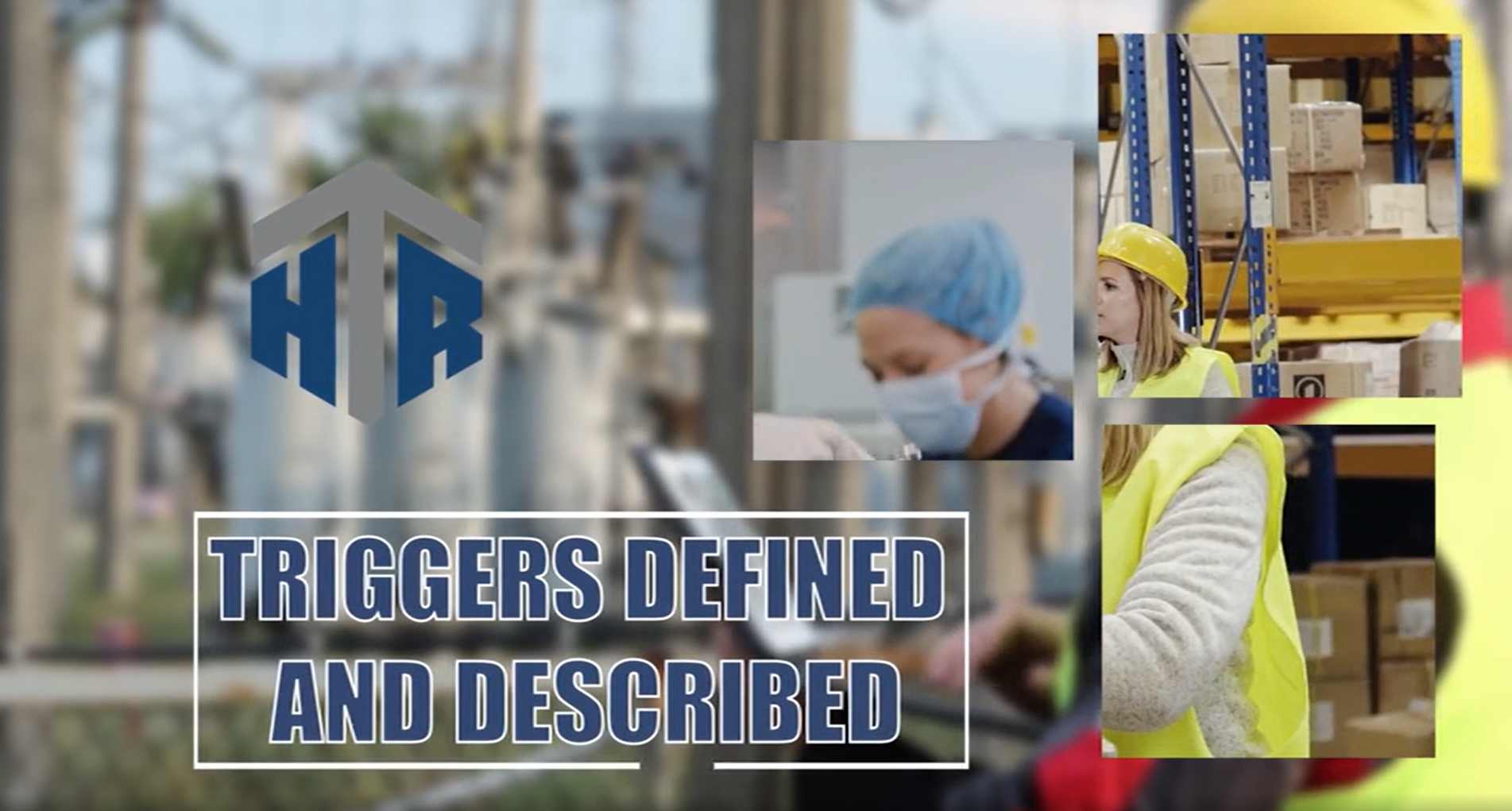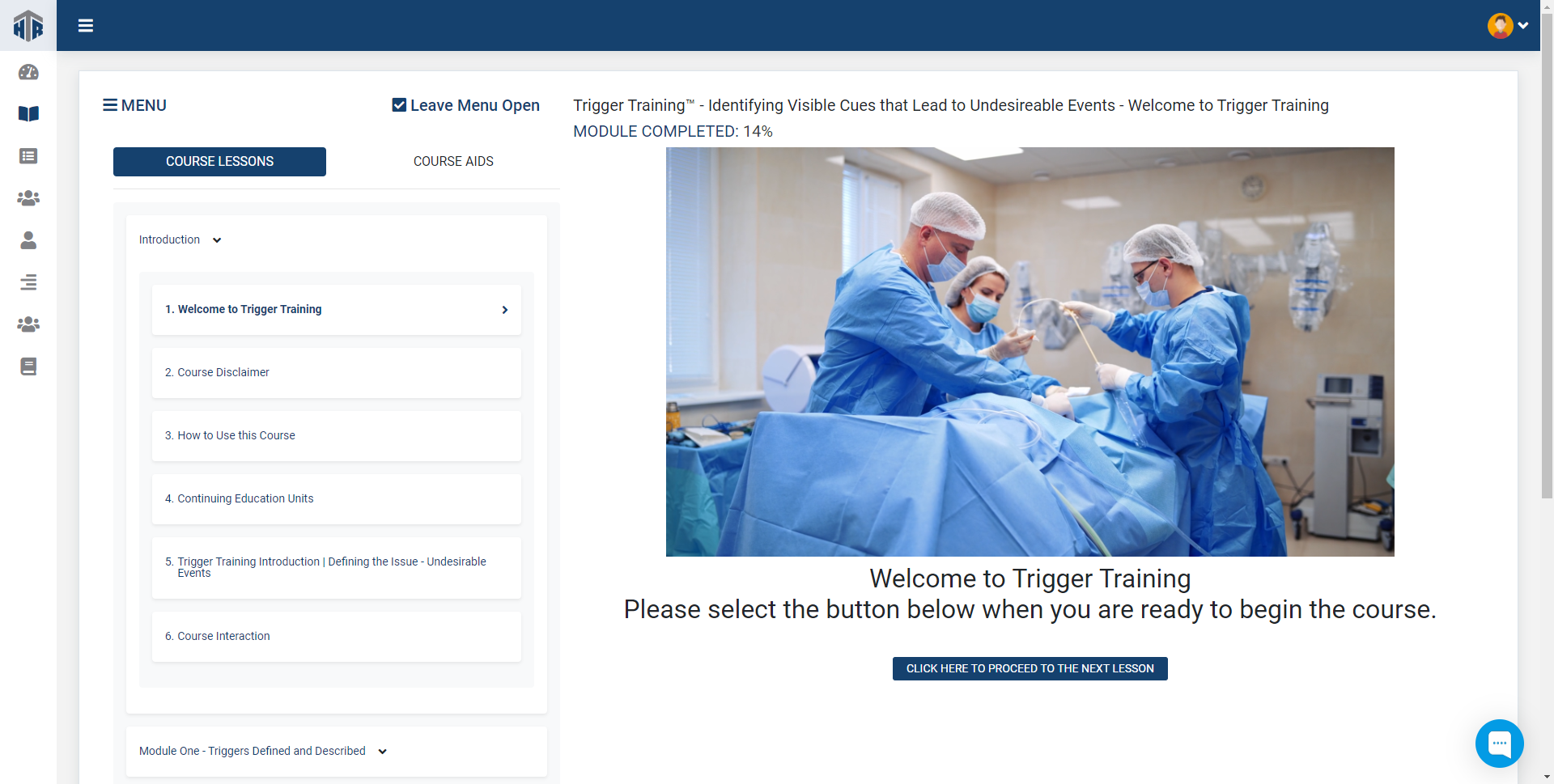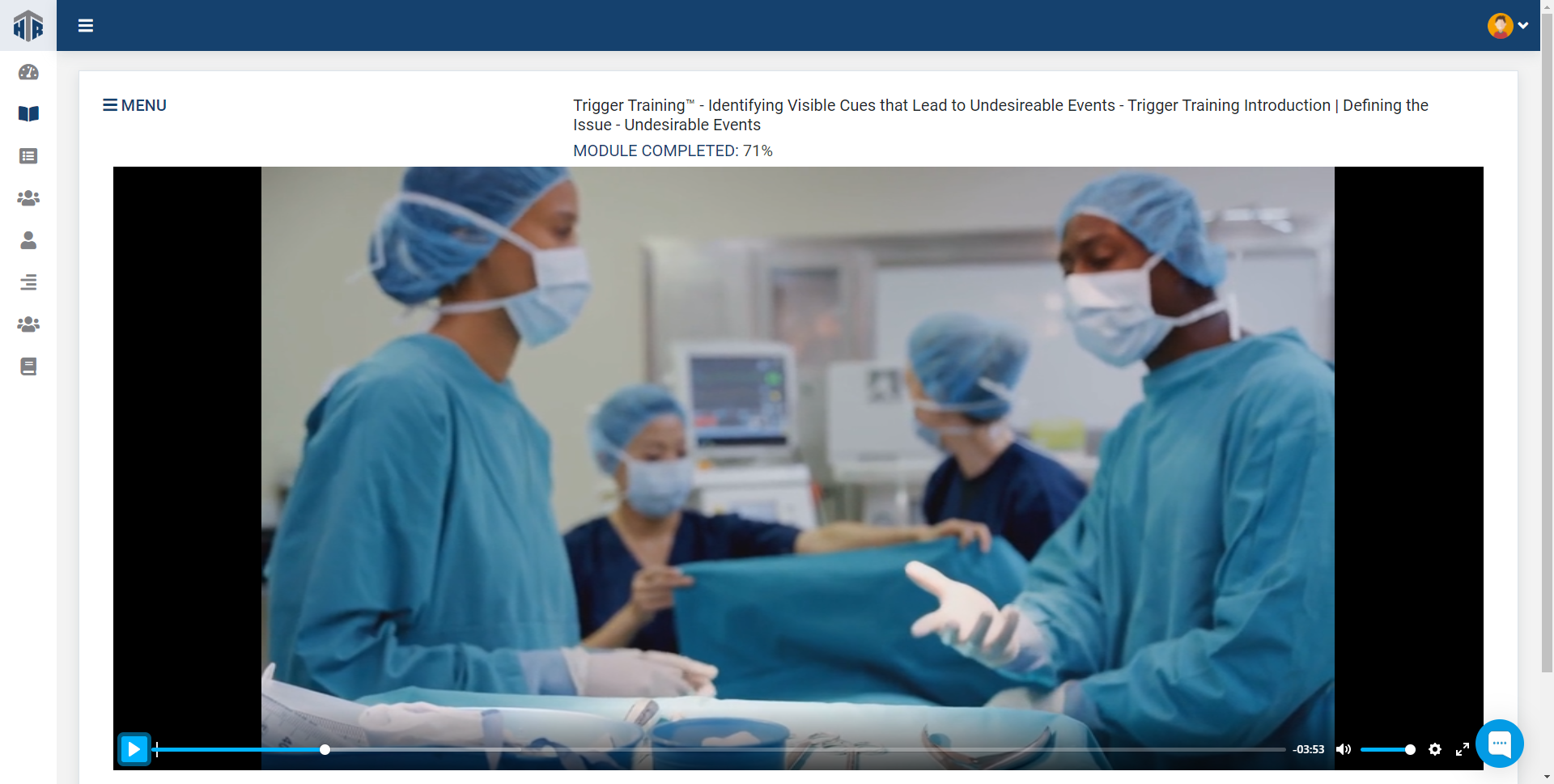Human and Organizational Performance Tools
This comprehensive course on Human and Organizational Performance Tools for error prevention and mitigation equips students with the knowledge and skills necessary to enhance human performance and prevent and mitigate errors in the workplace. Students will explore a range of tools, including self-checking, independent verification, concurrent verification, peer checking, 3-way communication, procedure use and adherence, the Two-Minute Rule, pre-work discussions, and Stop When Unsure and Questioning Attitude.
Starts at: $197 Per Seat
Discounts available based on volume
Human and Organizational Performance Tools
Through in-depth study and practical application, students will learn how to take personal responsibility for verifying their work, promote effective communication, follow established procedures, implement immediate action, and engage in proactive discussions. By mastering these human performance tools, students will contribute to error prevention, improved performance, and a safer work environment.
Our HOP Tools Include the Following Courses:
The Introduction to HOP Tools course provides a comprehensive overview of the fundamental strategies, techniques, and approaches that constitute Human and Organizational Performance (HOP) Tools. This course serves as a foundation for understanding how HOP Tools can enhance human performance and prevent errors in the workplace. Participants will gain insights into the inherent fallibility of human beings and the complexities of organizational systems, and how HOP Tools address these challenges. The course covers both mental and behavioral skills that individuals and teams can employ to improve their performance and ensure precision execution. By the end of the course, learners will have a solid understanding of the purpose and benefits of HOP Tools and their applicability across various roles within an organization. They will be equipped with the knowledge needed to embrace HOP Tools and foster a culture of reliability, communication, and continuous improvement in their work environments.
Self-Checking (also known as STAR or TV-STAR) provides participants with a comprehensive understanding of the self-checking technique and its importance in enhancing human performance and error prevention. This course explores the concept of deliberate and conscious self-monitoring during task execution to identify and correct potential errors before they occur. Participants will learn practical strategies and techniques for implementing self-checking effectively, including the use of mnemonic devices and cognitive aids. The course emphasizes the role of mindfulness, attention to detail, and situational awareness in self-checking, and how it contributes to maintaining positive control and precision execution. By the end of the course, participants will be equipped with the knowledge and skills to integrate self-checking as a fundamental aspect of their work practices, promoting a culture of reliability and error prevention in their organizations.
Independent Verification provides participants with a comprehensive understanding of the concept and practice of independent verification and its role in enhancing reliability and error prevention. This course explores the importance of having a second person independently verify critical tasks and work processes to ensure accuracy and quality. The course emphasizes the development of critical thinking skills, attention to detail, and clear communication to facilitate the independent verification process. By the end of the course, participants will be equipped with the knowledge and skills to effectively implement independent verification, contributing to a culture of precision execution, positive control, and error mitigation in their organizations.
This course introduces participants to the concept of concurrent verification and its significance in promoting reliability and error prevention using Concurrent Verification. This course emphasizes the importance of real-time collaboration and communication during critical tasks to ensure accuracy and mitigate the risk of errors. Participants will learn practical strategies for conducting concurrent verifications, including active observation, timely feedback, and effective coordination with team members. The course highlights the development of situational awareness, teamwork, and effective communication skills to facilitate the concurrent verification process. By the end of the course, participants will have the knowledge and skills to implement concurrent verification effectively, fostering a culture of precision execution, positive control, and error prevention within their organizations.
Peer checking is a series of actions by two individuals working together at the same time and place, before and during a specific action. Peer Checking provides participants with a comprehensive understanding of the peer checking technique and its significance in enhancing human performance and error prevention. This course explores the importance of collaborative error detection and correction through peer checks. Participants will learn practical strategies and techniques for implementing effective peer checking, including the use of structured communication protocols. The course emphasizes the development of communication skills, trust, and a supportive work culture to facilitate the peer checking process.
3-Part (Way) Communication provides participants with a comprehensive understanding of the importance and practical application of effective communication in high-reliability environments. This course emphasizes the significance of clear, concise, and accurate information exchange among team members to promote situational awareness, error prevention, and precision execution. Participants will learn about the three essential components of 3-Part (Way) Communication, including the sender, receiver, and verifier, and how each role contributes to effective communication. Through interactive exercises, participants will enhance their communication skills, such as active listening, asking clarifying questions, and providing concise feedback. By the end of the course, participants will be equipped with the knowledge and tools to implement 3-Part (Way) Communication in their work settings, fostering formal communication, collaboration, and enhanced performance.
Procedure Use and Adherence provides participants with essential knowledge and skills to effectively utilize procedures in the workplace. This course emphasizes the importance of following procedures accurately and consistently to ensure task reliability, error prevention, and safety. Participants will learn about the purpose and benefits of procedures, including their role in mitigating risks and standardizing work processes. Through interactive discussions and practical examples, participants will explore strategies for effectively interpreting and applying procedures, as well as techniques to address common challenges and deviations. The course also highlights the significance of feedback loops and continuous improvement in refining procedures for optimal performance. By the end of the course, participants will be equipped with the necessary tools to promote procedure use and adherence, enhancing overall operational reliability and safety culture within their organizations.
Two-Minute Drill (Rule) provides participants with a foundational understanding of this important HOP tool for error prevention and situational awareness. The Two-Minute Drill is a technique designed to help individuals pause and reflect for two minutes before starting a task or critical activity. In this course, participants will learn about the principles behind the Two-Minute Drill and its role in promoting deliberate actions, mindfulness, and error reduction. Through interactive discussions and practical exercises, participants will explore how the Two-Minute Drill can enhance their situational awareness, decision-making, and overall task performance. The course will also address common challenges and misconceptions related to implementing the Two-Minute Drill and provide strategies for successful integration into everyday work routines. By the end of the course, participants will have the knowledge and skills to effectively utilize the Two-Minute Drill as a valuable tool for enhancing performance, preventing errors, and fostering a culture of reliability within their organizations.
Pre-Work Discussions using the RU-SAFE process offers participants a comprehensive understanding of this powerful tool for proactive risk assessment and error prevention. The course introduces the concept of pre-work discussions and how they contribute to creating a shared understanding of tasks, potential risks, and mitigation strategies among team members. Through interactive discussions and practical exercises, participants will explore the key elements of effective pre-work discussions, including establishing clear expectations with a focus on Critical Steps and associated Risk Important Actions, identifying potential hazards, contingency planning, fail-safe strategies, and developing strategies to mitigate risks. The course will also emphasize the importance of open communication, active engagement, and collaborative decision-making during pre-work discussions. By the end of the course, participants will have the knowledge and skills to facilitate and participate in pre-work discussions using the RU-SAFE process, enabling them to proactively manage risks, prevent errors, and promote a culture of safety and reliability within their organizations.
The HOP Tools Refresher course and final exam is designed to reinforce and enhance the knowledge and skills acquired in the Introduction to HOP Tools and its associated courses. This comprehensive refresher course and exam provides participants with the opportunity to revisit the key concepts, techniques, and strategies of HOP Tools for error prevention and mitigation. Through interactive discussions, case studies, and practical exercises, participants will refresh their understanding of self-checking, independent verification, concurrent verification, peer checking, 3-way communication, procedure use and adherence, the Two-Minute Drill, pre-work discussions, and Stop When Unsure and Questioning Attitude. The course aims to deepen participants' mastery of these tools by delving into HOP topics, addressing common challenges, and providing updated best practices. By the end of the course, participants will leave with a renewed confidence in their ability to apply HOP Tools effectively, contributing to error prevention, enhanced performance, and a safer work environment.






Human Performance Tools Objectives
Note: Optional enhanced objectives can be customized to any desired focus area or audience for our training courses.